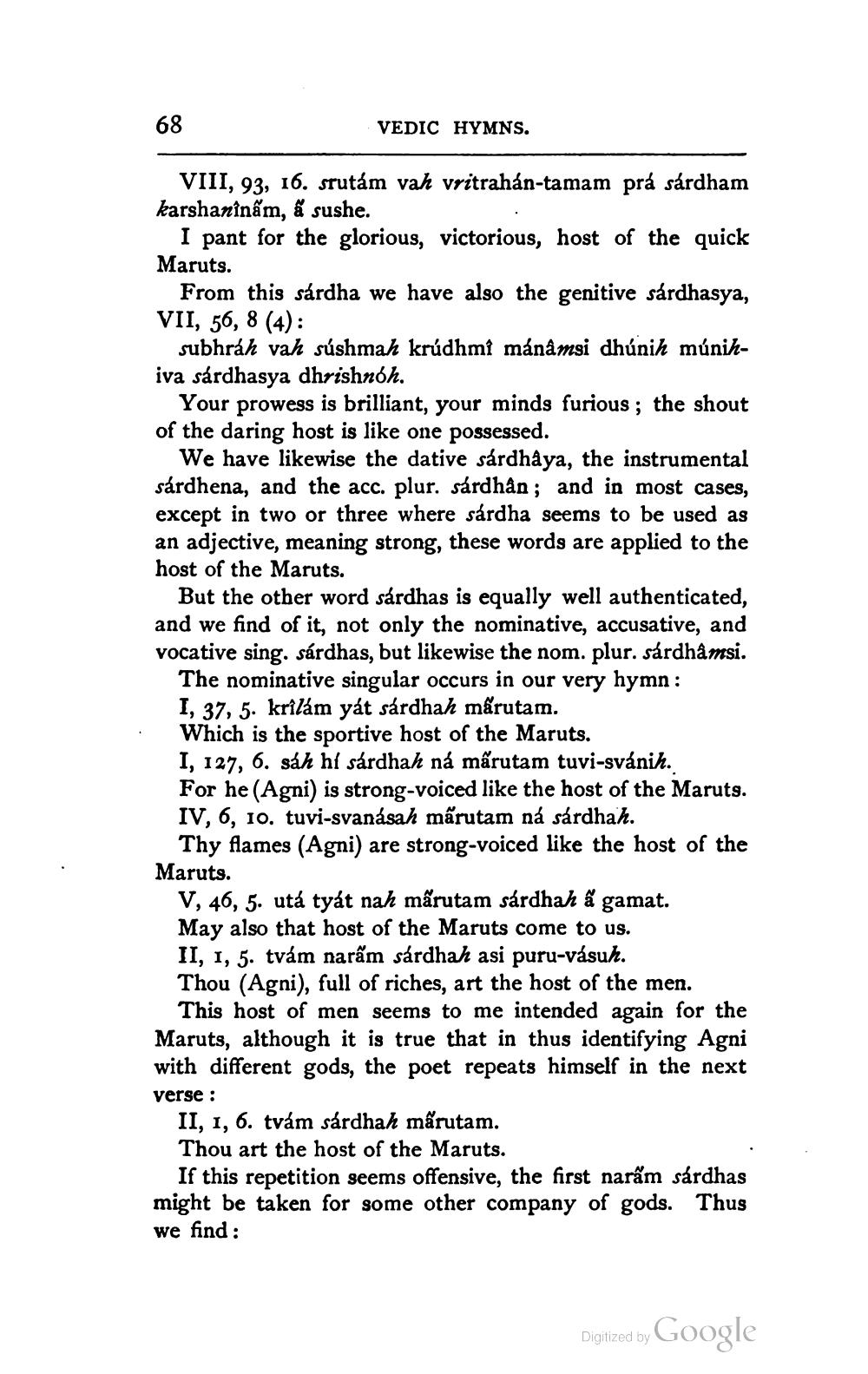________________
68
VEDIC HYMNS.
VIII, 93, 16. srutám vah vritrahán-tamam pra sárdham karshaninấm, & sushe.
I pant for the glorious, victorious, host of the quick Maruts.
From this sárdha we have also the genitive sárdhasya, VII, 56, 8 (4):
subhráh vah súshmah krúdhmi mánâmsi dhủnih múnihiva sárdhasya dhrishnóh.
Your prowess is brilliant, your minds furious; the shout of the daring host is like one possessed.
We have likewise the dative sárdhầya, the instrumental sárdhena, and the acc. plur. sárdhân; and in most cases, except in two or three where sárdha seems to be used as an adjective, meaning strong, these words are applied to the host of the Maruts.
But the other word sárdhas is equally well authenticated, and we find of it, not only the nominative, accusative, and vocative sing. sárdhas, but likewise the nom. plur. sárdhâmsi.
The nominative singular occurs in our very hymn : I, 37, 5. krilám yát sárdhah mãrutam. Which is the sportive host of the Maruts. I, 127, 6. sáh hí sárdhah ná mấrutam tuvi-svánih. For he (Agni) is strong-voiced like the host of the Maruts. IV, 6, 10. tuvi-svanásah mãrutam ná sárdhah.
Thy flames (Agni) are strong-voiced like the host of the Maruts.
V, 46, 5. utá tyát nah mãrutam sárdhah a gamat. May also that host of the Maruts come to us. II, 1, 5. tvám narấm sárdhah asi puru-vásuh. Thou (Agni), full of riches, art the host of the men.
This host of men seems to me intended again for the Maruts, although it is true that in thus identifying Agni with different gods, the poet repeats himself in the next verse :
II, 1, 6. tvám sárdhah mãrutam. Thou art the host of the Maruts.
If this repetition seems offensive, the first narâm sárdhas might be taken for some other company of gods. Thus we find :
Digitized by
Digized by Google




